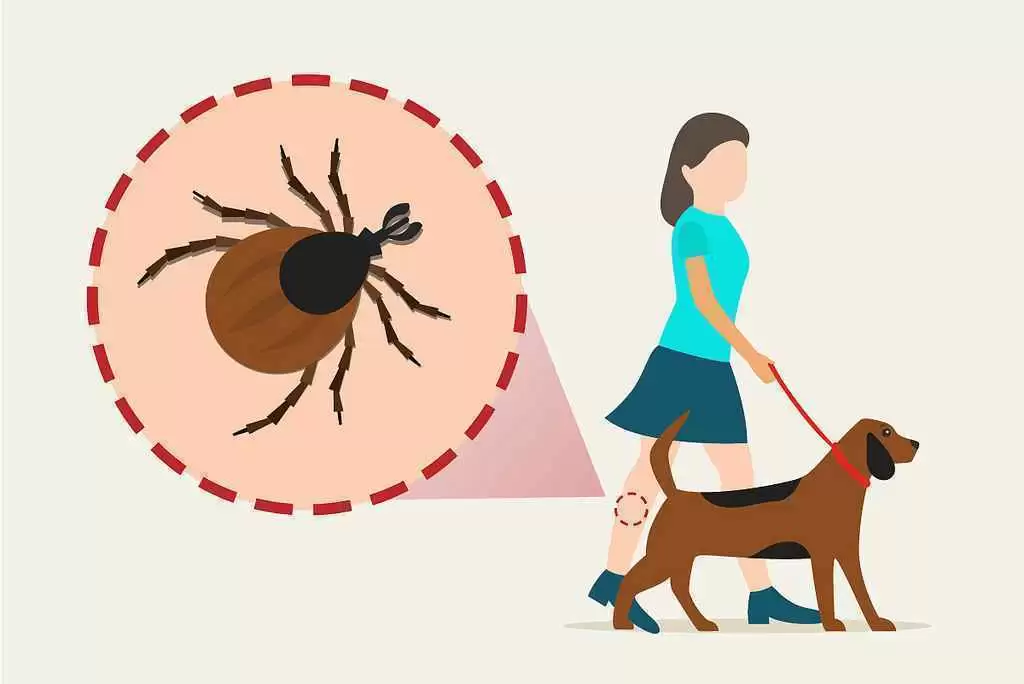.webp.8be10dc7844caff4ebcf60d41e396c72.webp)
02/07/2018 - Babesiosis is a malaria-like parasitic disease caused by infection with Babesia, a genus of Apicomplexa, which is commonly spread via the bite of infected Ixodes ticks, by blood transfusion or congenitally.
Although most patients with babesiosis typically have a fever, there can also be non-specific symptoms, which can triggers delays or errors in diagnosis. Babesia divergens is considered the main agent of human babesiosis in Europe.
Celiac.com Sponsor (A12):
A team of researchers recently reported a case of a celiac disease patient with splenic dysfunction from resulting in severe babesiosis. Their report describes a 79-year-old Irish man with hyposplenism and splenic atrophy due to adult celiac disease, who became critically ill from a severe Babesia divergens infection.
So far, this is particular report about a single patient doesn't give much information beyond citing the development itself, and urging doctors to be on the lookout for possible consequences of splenic dysfunction from adult celiac disease, such as serious pneumococcal infections and babesiosis.
The report does mirror, or touch on, another clinical report from Spain in 2016. In that report, by Arsuaga, et. al., a 35-year old patient with normal splenic function presented with persistent nonspecific symptoms such as the recurrence of fever, chills, headaches, weakness, general malaise, and constant fatigue over several months. As fever indicated an infectious disease, laboratory tests were carried out for a large number of pathogens, including Anaplasma phagocytophilum, B. divergens, and B. microti. After initial treatment with atovaquone/proguanil and azithromycin failed to produce results, the patient remained on that drug regimen for 10 weeks without side effects.
Although the patient still had frequent episodes of fever, his general condition improved. At the end of the treatment, the bouts of fever were resolved and the patient's only symptom was fatigue. In follow-up visits during the subsequent 4 months, PCR analysis revealed that the patient had cleared the parasites.
Though these reports have been isolated, they do indicate that doctors should watch for possible consequences of splenic dysfunction from adult celiac disease, such as serious pneumococcal infections and babesiosis.
Celiac.com will follow and report on any developments in this story.
Sources:
- Ticks Tick Borne Dis. 2017 Jun;8(4):537-539. doi: 10.1016/j.ttbdis.2017.02.016. Epub 2017 Feb 28.
- Vector-Borne and Zoonotic Diseases. October 2016, 16(10): 677-679.
The clinical team included S O'Connell, C Lyons, M Abdou, R Patowary, S Aslam, N Kinsella, A Zintl, KP Hunfeld, GP Wormser, J Gray, C Merry, and H Alizadeh. They are variously affiliated with the Department of Infectious Diseases, St. James's Hospital, Dublin, Ireland, the Department of Surgery, Letterkenny University Hospital, Letterkenny, Ireland, the Department of Haematology, Letterkenny University Hospital, Letterkenny, Ireland, the Department of Haematology, St. James's Hospital, Dublin, Ireland, the School of Veterinary Medicine, University College Dublin, Dublin, Ireland, the Institute for Laboratory Medicine, Microbiology & Infection Control, Northwest Medical Centre, Academic Teaching Hospital, Goethe-University, Frankfurt, Germany, the Division of Infectious Diseases, Department of Medicine, New York Medical College, Valhalla, NY, USA, the UCD School of Biology and Environmental Science, University College Dublin, Dublin 4, Ireland, the Department of Infectious Diseases, St. James's Hospital, Dublin 8, Ireland; Northwestern Memorial University Chicago, USA; Makerere University Uganda, Uganda, the Department of Haematology, Letterkenny University Hospital, Letterkenny, Ireland; and with Pecs University, Faculty of General Medicine, Pecs, Hungary.








Recommended Comments
There are no comments to display.
Create an account or sign in to comment
You need to be a member in order to leave a comment
Create an account
Sign up for a new account in our community. It's easy!
Register a new accountSign in
Already have an account? Sign in here.
Sign In Now